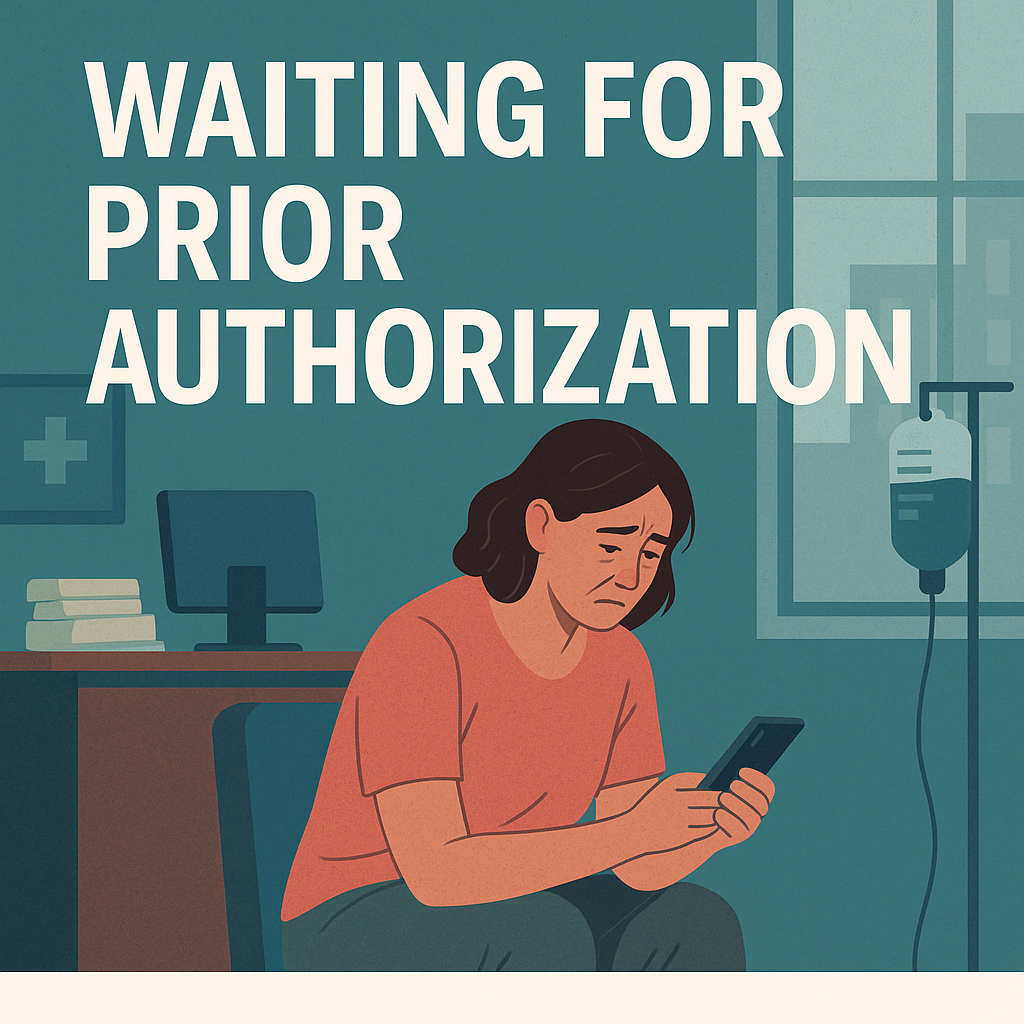Why Prior Authorization Is Failing Patients and How Healthcare Can Fix It

Why Prior Authorization Is Failing Patients and How Healthcare Can Fix It
If you’ve ever waited for an insurance approval while a diagnosis sat heavy on your mind, you know how long a few days can feel. For cancer patients, those days aren’t just uncomfortable. They can be dangerous.
Recent studies from the American Society of Clinical Oncology (ASCO), highlighted by Medscape and Health Care Un-Covered, show that prior authorization has shifted from a cost-control safeguard into one of the most pervasive barriers to care in American medicine.
What began as a small administrative step has turned into a quiet crisis, one measured not in dollars but in delayed treatments, clinician burnout, and unnecessary suffering.
The Human Toll of Administrative Delay
Behind every statistic is a person waiting for permission to heal.
An ASCO survey found that more than 80% of radiation oncologists reported an increase in prior authorization requirements over the past three years, and nearly all said those delays affected patient care. Some physicians reported that authorization delays even contributed to patient deaths.
A companion study of 1,201 cancer patients revealed that three out of four needed at least one prior authorization during their treatment. Among those directly involved, half spent up to eight hours on paperwork and follow-up calls. A third spent several days, and 12% spent more than a week fighting for coverage they already paid for.
One researcher described prior authorization as a “second job” for patients. For people already managing fatigue, pain, and fear, that’s an impossible burden. And while most approvals are eventually granted, they often arrive too late — after pain relief has been delayed, after a test has been rescheduled, after time and energy have been drained.
(Sources: Medscape, “Prior Auth Hurdles Ramp Up for Patients and Oncologists,” Oct 10, 2025; Health Care Un-Covered, “Prior Authorization Has Become Standard, When It Shouldn’t.”)
The Systemic Breakdown
Clinicians are carrying a similar load.
In the same set of studies, 91% of oncologists said prior authorization has worsened staff burnout. Nearly half have reassigned personnel solely to manage insurer requirements, taking time and talent away from patient care.
Physicians described “peer-to-peer” reviews as frustratingly unproductive. Almost half said those reviews rarely changed outcomes, even when denials were later overturned. The process often feels less about ensuring quality and more about endurance.
The studies also found that prior authorization now touches nearly every corner of cancer care. From targeted therapies to anti-nausea medications, even biomarker testing now requires insurer approval. That’s not a sign of clinical vigilance. It’s a symptom of administrative overreach.
Why It’s Happening
Prior authorization was originally created to keep healthcare spending in check. Over time, the system grew more complex and less transparent. In a landscape driven by fee-for-service incentives and cost containment, authorization became a reflex rather than a safeguard.
Now, automation and artificial intelligence are being introduced to “streamline” the process, including within the Centers for Medicare and Medicaid Services’ WISeR Model. The intention is to increase efficiency, but without structural reform, it risks scaling the same inefficiency faster. The problem isn’t how fast we make decisions; it’s how those decisions are made.
At its heart, this is a design problem. Systems meant to protect care have become systems that need care themselves.
How We Can Do Better
The people delivering care are doing their best inside systems that often work against them. Clinicians and patients share the same goal: timely, compassionate care that honors medical judgment and human need. What stands in the way isn’t a lack of will. It’s a lack of connection — data, systems, and workflows that don’t speak the same language.
This is where Hyve Health focuses its work. Hyve was built on a simple belief: in a data-first world, we must remain people-first. Every workflow, product, and insight we create is designed to restore the human element healthcare has lost while giving organizations the clarity to act.
Through Hyve’s intelligent workflow solutions, providers can identify denial patterns before they turn into delays. Our Hyve Insights platform helps teams visualize authorization data, spot bottlenecks, and download actionable reports that reveal where time is being lost and why. The result is less administrative friction and more meaningful time for care.
At its core, Hyve’s technology helps give providers back the time they need to focus on what matters most: improving patient care. When systems are designed with empathy and intelligence, authorization can evolve into what it was meant to be — a quick confirmation of care, not an obstacle to it.
Reclaiming Humanity in a System That Forgot It
Every story and study about prior authorization points to the same truth. Somewhere along the way, we allowed process to take the place of purpose. When a patient’s future depends on whether a form was faxed, the system itself becomes the one in need of healing.
At Hyve, we’re working to restore balance and make data serve people, not the other way around. Healthcare should move at the speed of compassion, not compliance. No one should lose precious time to a process that forgot who it was meant to protect.
(Sources: Ault, A. (2025, October 10). Prior Auth Hurdles Ramp Up for Patients and Oncologists. Medscape;Health Care Un-Covered. (2025). Prior Authorization Has Become Standard, When It Shouldn’t)



